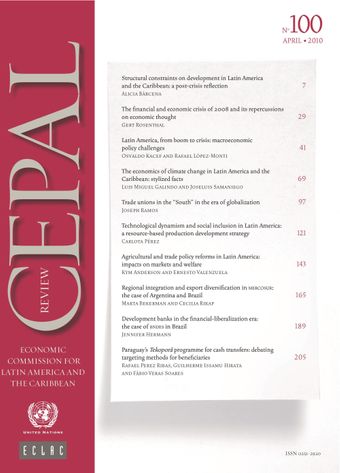-
Trade unions in the “South” in the era of globalization
- Source: CEPAL Review, Volume 2010, Issue 100, Apr 2010, p. 97 - 120
- Spanish
-
- 24 Apr 2010
Abstract
This article examines the effects of globalization on the trade union movement in developing countries (the “South”). It concludes, first, that globalization has been asymmetrical: much further-reaching for trade in goods than for capital flows, weak for technology transfer and very limited in migratory flows. Second, it examines the role and economic repercussions of labour unions. It finds that, contrary to the orthodox view, these have little negative impact on employment but do significantly reduce wage inequalities. In view of the shift in the South since the 1980s away from development strategies based on import substitution aimed at domestic markets and towards export-oriented strategies, the final section proposes new tasks and priorities for unions that are more consistent with this strategic reorientation, both at the national and international levels as well as within firms.





